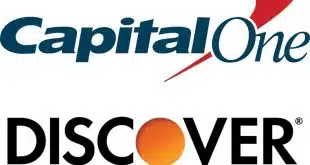While many ATM operators know what hardware and software their fleets need to enable EMV chip card acceptance, most are waiting to fully upgrade until concerns about routing issues, chargeback rates, and continuing uncertainty subside, according to the 2016 ATM Channel EMV Readiness survey from the ATM Industry Association.
Like the one its point-of-sale counterpart tackled in 2015, the U.S. ATM industry faces a liability shift because of the introduction of EMV credit and debit cards. MasterCard Inc.’s ATM liability shift kicks in Oct. 1, 2016; Visa Inc.’s is Oct. 1, 2017. Since most ATMs accept cards with all the major network brands, most ATM operators are working against MasterCard’s earlier liability-shift date.
Indeed, 51% of the ATMIA’s survey respondents have upgraded more than half of their fleet, but at the end of 2015, ATM operators said only 19% of their machines could actively accept EMV chip transactions. That percentage is expected to increase to 58% by the end of 2016 and to 79% by the end of 2017.
Conducted in January, the survey found that 88% of the 120 respondents know what their cash machines need to become EMV compliant, and 90% of them are purchasing the necessary components.
Why the disparity between preparedness and activation? “It’s an overall feeling that the payment environment isn’t ready for [it] this year,” says David Tente, executive director of the ATMIA’s Sioux Falls, S.D.-based U.S. organization. Some may ponder, “Why should I put myself on the line?” he says. “There’s a concern that they’re going to be held accountable for more than they should be held accountable for at this point in time.” The ATMIA’s U.S. membership numbers about 1,000 organizations and individuals.
Just as some merchants have encountered chargebacks related to EMV acceptance when they had not before, so are some ATM operators, Tente says. “The liability assignment processes are still fuzzy in the minds of a lot of folks,” he says.
ATM operators also are concerned about transaction-routing issues stemming from a network-choice mandate included in the Durbin Amendment that regulates debit interchange. EMV originally was developed to accommodate a single network for debit transactions. Complying with the network-choice mandate delayed U.S. debit EMV applications. While most of these issues are resolved, many issuers have aggressively issued EMV credit cards before issuing chip debit cards. Visa, in its last update for 2015, said there were 212 million EMV credit and debit cards bearing the Visa mark, but only provided detailed transaction data for credit transactions.
Earlier expectations about ATM readiness for EMV were off. The association’s 2014 survey forecasted that only 12% of ATM operators would have no ATMs accepting EMV transactions by the end of 2015. The latest survey pegs that number at 48%.





